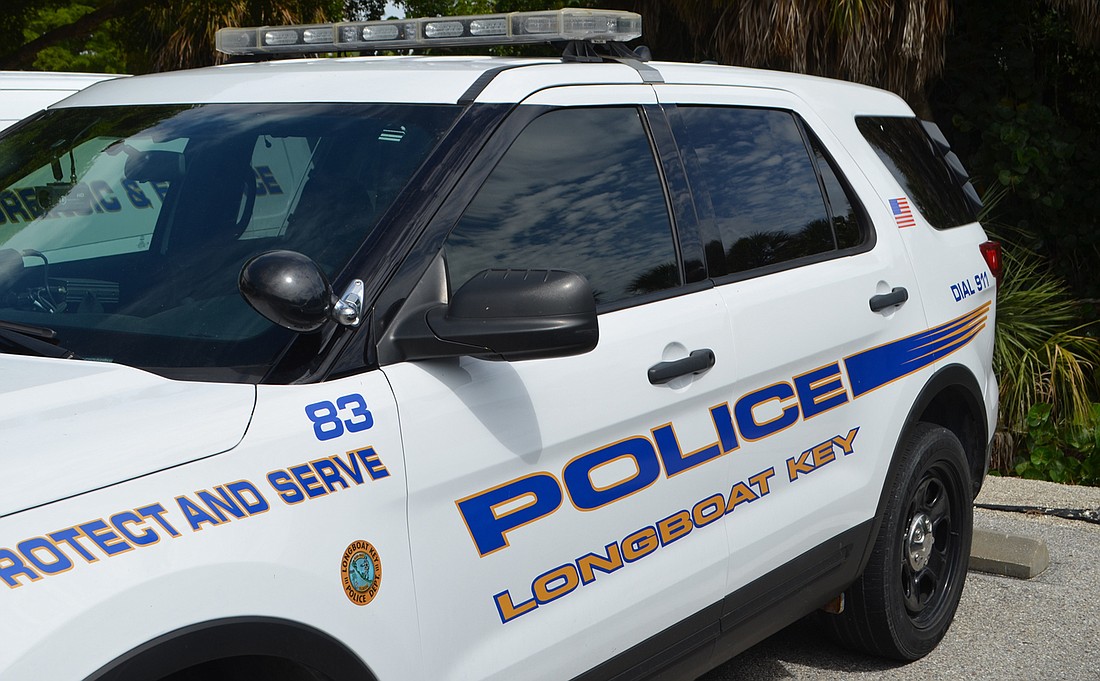- May 12, 2025
-
-
Loading

Loading

The Longboat Key Police Department wants to become more competitive with other police departments by adding cars to its fleet, allowing officers to take home their patrol vehicles.
Though the department faces issues with hiring and retaining officers, Chief George Turner is confident that adding the additional vehicles will increase morale, commitment to the role and attract more officers to the department.
“Going forward with a take-home car program would improve a few different things,” Turner said. “One, it saves a lot of money. The cars are better maintained. They are assigned to individual officers. That is their office per se. The equipment stays in the car, we don’t keep moving electronic equipment from one car to another. Everything in the car lasts for the length of the car, which means all of our equipment will last eight to 10 years as well. … Another big reason is retention and recruitment of our officers.”
The Longboat Key Police Department is the only department in Manatee, Sarasota, Charlotte, Pinellas and other surrounding counties through much of Florida that does not have take-home cars.
“It’s a win-win for both the officers and for the town,” Turner said.
As discussions about starting such a program move forward, when the department could have the cars out on the road is still up in the air due largely to supply chain issues.

“Right now, cars like everything else are backlogged; it’s hard to get them,” Turner said. “We’ve been searching for cars over the last few months. We ordered one that (the Town Commission) approved last year in February and we still don’t have it on the ground.”
Turner mentioned the possibility of purchasing hybrid vehicles because they are more readily available, even if the cost is a few thousand dollars higher.
“I can tell you from personal experience that being able to take your vehicle home as a fire and rescue guy is a tremendous benefit to the employee in terms of motivation and dedication to the job,” Commissioner Gary Coffin said. “It’s a big plus to be able to do that. I can’t really put a price on it, but I can tell you it makes them work harder. They feel more attached to the system.”
Having the take-home cars also serves the areas where police officers live by acting as a crime deterrent while the vehicle is present on their street.
“Having police cars in driveways and neighborhoods really does a tremendous amount to curb crime,” Commissioner BJ Bishop said.
Currently, the department has 11 “hot seated” patrol vehicles. Hot seat cars are used 24 hours per day, seven days a week. It requires officers to move emergency response equipment assigned to them from car to car, which causes wear and tear to the equipment and adds downtime between shifts. On a typical day, the cars are used by an officer for a 12-hour shift and then reassigned to another officer for another 12-hour shift.
“The cars that we do have, we are running them a lot more than we should,” Turner said. “The miles are building up on them. These cars now will probably not last but two to three years.”
Currently, vehicles and equipment need to be replaced every three years. Adding additional patrol cars will increase that time frame to about eight years because the cars will be driven less.
Over the next six years, town staff estimates that adding the vehicles will save the town about $800,000. Over 15 years, that savings estimate increases to $1.75 million. A patrol car costs about $62,000 fully equipped, with yearly inflation increasing that number between 6% and 10% each year.
Another big savings is the number of additional miles the vehicles will be able to drive in their useful lifetime. A conservative estimate is about 45,000 additional miles of patrol on the barrier island per vehicle, said Turner.
As part of the take-home program, officers would be responsible for their vehicle’s routine maintenance. Currently, the department utilizes the manufacturer’s warranty and maintenance plans for maintenance needed on the vehicles.
“Historically, the maintenance costs on take-home cars go down dramatically from the hot seated cars,” Turner said.
Commissioners raised concerns about insurance costs and liability issues with officers driving the vehicles to and from work, on and off the island.
“Our policy is going to be very strict, very comprehensive in reference to what they can do on their way to work, back and forth,” Turner said.
The patrol cars would not be allowed to be driven for any personal uses.
According to department general order 9012, permissible off-duty uses of the vehicle include:
When it comes to officer liability, if an officer is on the way to the town in a marked patrol car and gets in an accident, it remains the responsibility of the officer, not the town, to cover the associated costs. An officer is required to purchase non-owner car liability insurance to cover such incidents should they occur.
Discussions on the matter be followed by budget hearings. The next workshop on the preliminary budget is June 20.